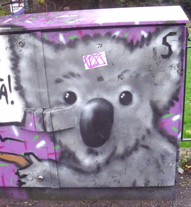Eye tracking products may soon be able to tell whether a suspect is lying about recognising someone they know, according to a study from the University of Portsmouth.
Using eye tracking technology, academics from Portsmouth’s International Centre for Research in Forensic Psychology, found that people’s eyes moved in a different pattern when looking at faces they recognised.
Lead author of the research paper, Ailsa Millen, said: “Criminal accomplices often deny that they know other members in their networks. However, if a co-conspirator denies recognition in this way, their eye movements when viewing photos of those suspects, may reveal this type of lie.”
The researchers recorded the eye movements of 59 participants while looking at 200 digital colour photographs of familiar and unfamiliar faces. Familiar faces included people the participants knew in real life, famous celebrities and those only seen briefly before the experimental trials. Sometimes the participants lied about whether they recognised the photos, sometimes they told the truth.
Ailsa Millen said: “We found that people’s eye movements were different when looking at photographs of faces they knew well compared to those they did not know, despite verbal reports denying recognition. When a participant looked at a face they recognised their eyes moved in a different pattern with fewer fixations. There is substantial evidence to suggest that this pattern is involuntary, which means it could be hard to control or fake. This research could be valuable to police when trying to confirm key identities in criminal networks such as terrorist cells or gangs.”
Ailsa and colleagues modified a memory detection technique known as the Concealed Information Test (CIT) to conduct the research. The CIT differs from traditional lie detection techniques that attempt to directly assess guilt based on arousal. It is considered the gold standard of laboratory methods to detect concealed recognition and has been researched and validated over decades of scientific studies.
The paper, ‘Tracking the truth: the effect of face familiarity on eye fixations during deception’, will be published in the next print edition of the Quarterly Journal of Psychology: Special Edition on Face Leaning.
It was co-authored by Prof Lorraine Hope and Prof Aldert Vrij from Portsmouth; and Dr Anne P Hillstrom from the University of Southampton.










